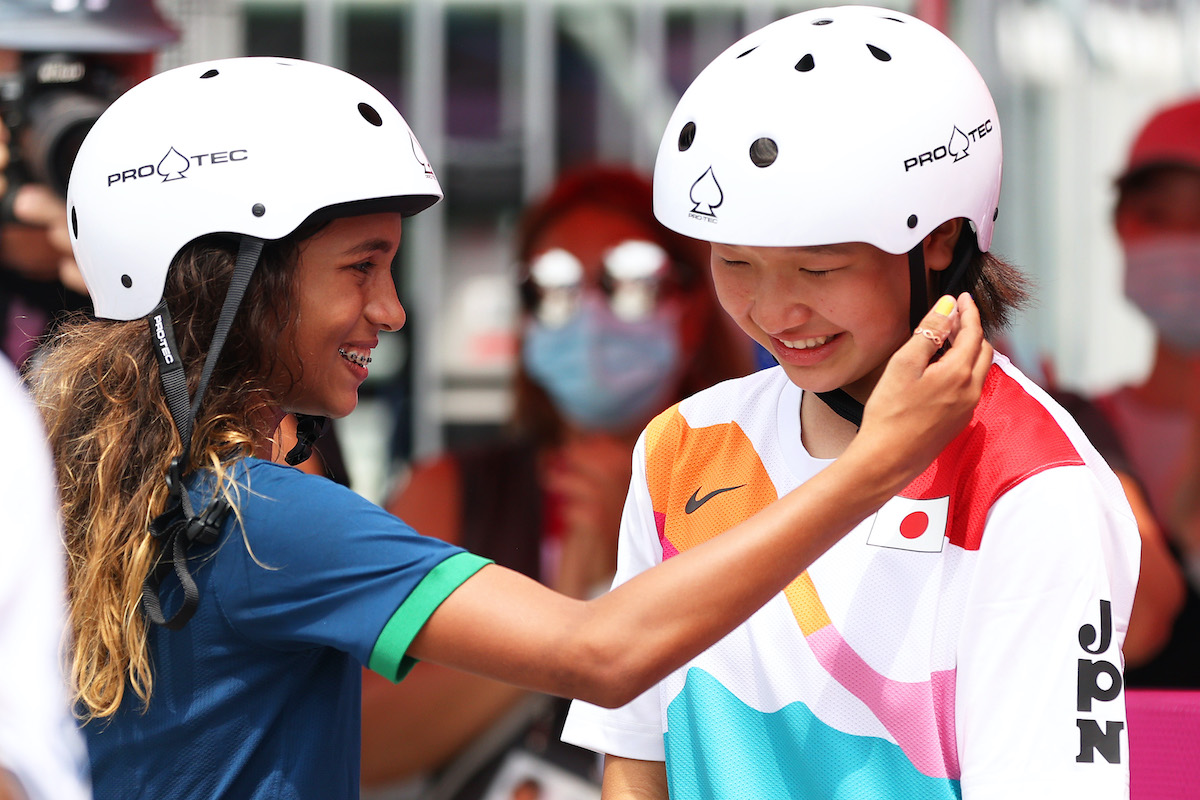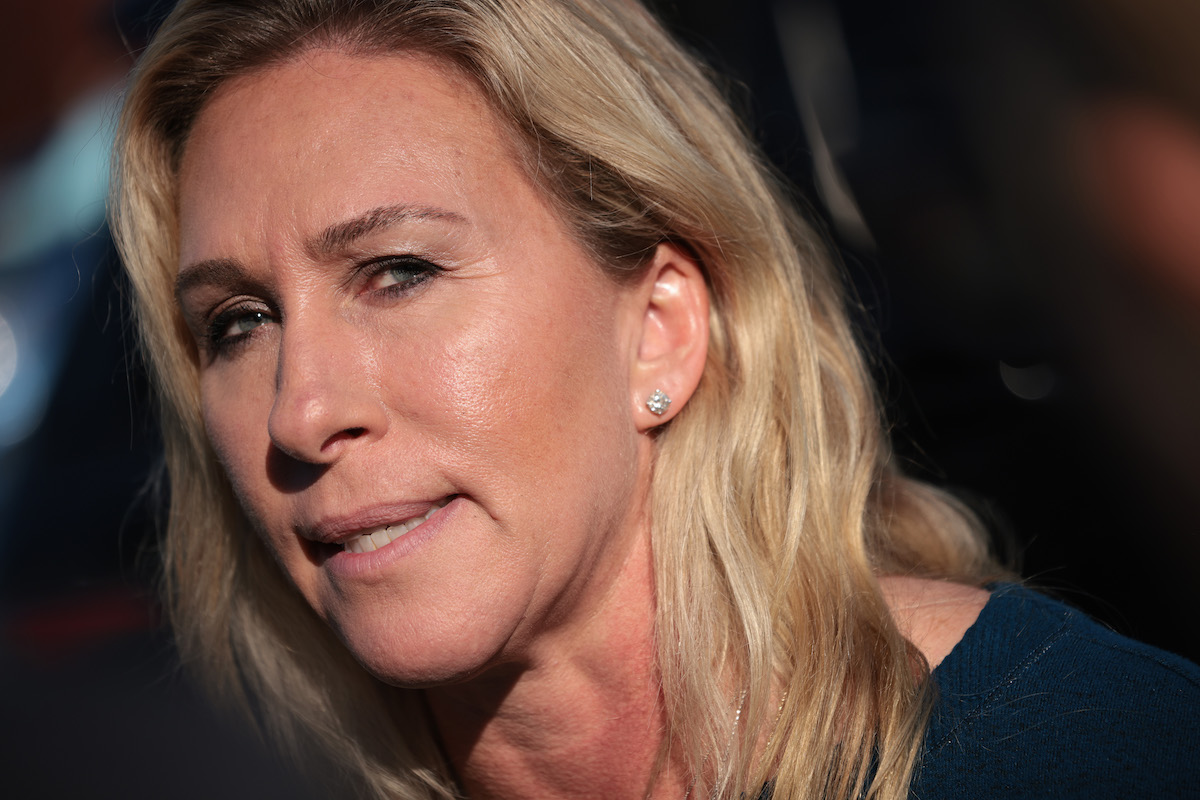A number of sports have made their debut on the Olympic schedule this year. Surfing, sport climbing, karate, and more are all happening at the Tokyo Olympics for the first time. But there’s probably no new sport we’re more excited about than skateboarding–specifically women’s skateboarding, thanks to the incredible girls at its forefront.
The three athletes who took the podium this weekend after medaling in the street competition have a combined age of just 42. The gold medal went to 13-year-old Momiji Nishiya of Japan, while 13-year-old Rayssa Leal (Brazil) won silver, and 16-year-old Funa Nakayama (also Japan) took bronze.
Holy cow. The three medalists in the Women’s Olympic Street Skateboarding competition are 13, 13, and 16 (in that order). Future is looking bright for the sport 🛹
— Ben Bertoli (@SuperBentendo) July 26, 2021
Updated: pic.twitter.com/O6uAkppJrs
— Olympics (@Olympics) July 26, 2021
The move to include skateboarding at the Olympics is likely to go far in the International Olympic Committee and Tokyo organizers’ goal of engaging a larger number of young people, both as viewers and as participants.
The Olympics as a whole does not have age restrictions but certain sports within the games do. Skateboarding was introduced into the Olympics without any age restrictions and that’s clearly for the best, as young girls are dominating the sport. (Though the youngest athlete in this year’s games is 12-year-old table tennis player Hend Zaza of Syria.)
Both 13 years old and have Olympic medals 🥇🥈
What a moment between Japan’s Momiji Nishiya and Brazil’s Rayssa Leal ❤️
(via @NBCOlympics) pic.twitter.com/wQ3XCtn3tU
— SportsCenter (@SportsCenter) July 26, 2021
Seeing a 13-year-old girl take home a gold medal (not to mention seeing these girls support each other as so beautifully illustrated in that clip above) has the potential to excite a whole new generation of athletes to take up a sport that, even now, has a dearth of women skaters and even less publicity on those who do exist.
Sports Illustrated spoke to several professional women skaters who described coming up in a scene where they had to fight to be taken seriously. 34-year-old X Games champion Alexis Sablone told the outlet that “the industry has really ignored females and given us no spotlight” for a long time.
“You don’t see women on the covers of magazines, and sponsors aren’t paying women. So I think [the Olympics] has given the females in skateboarding a platform that can’t really be ignored. There’s a podium. Suddenly the industry will start paying attention,” Sablone says. “I wish it hadn’t taken this to legitimize us, but it’s a step in that direction.”
Sablone, who placed fourth in Tokyo, also spoke of the impact she and her generation of skaters have had on younger girls.
“We get a lot of messages on social media from young girls that start skating because we skate,” she said. “I just try to be the inspiration that I didn’t have when I started skating. When I started skating, I had no one I could show my dad.”
Now those young girls are her Olympic peers. And they seem to be blissfully unaware of the obstacles their elders have had to face in the field. Leal straight-up told Sports Illustrated, “There is no gender barrier in sports.” Nishiya just said, “Girls can skateboard.”
That’s obviously correct.
As for the lack of gender barrier, here’s hoping none of these girls dominating their sport ever have to think otherwise.
(image: Patrick Smith/Getty Images)
Want more stories like this? Become a subscriber and support the site!
—The Mary Sue has a strict comment policy that forbids, but is not limited to, personal insults toward anyone, hate speech, and trolling.—










Published: Jul 27, 2021 12:59 pm